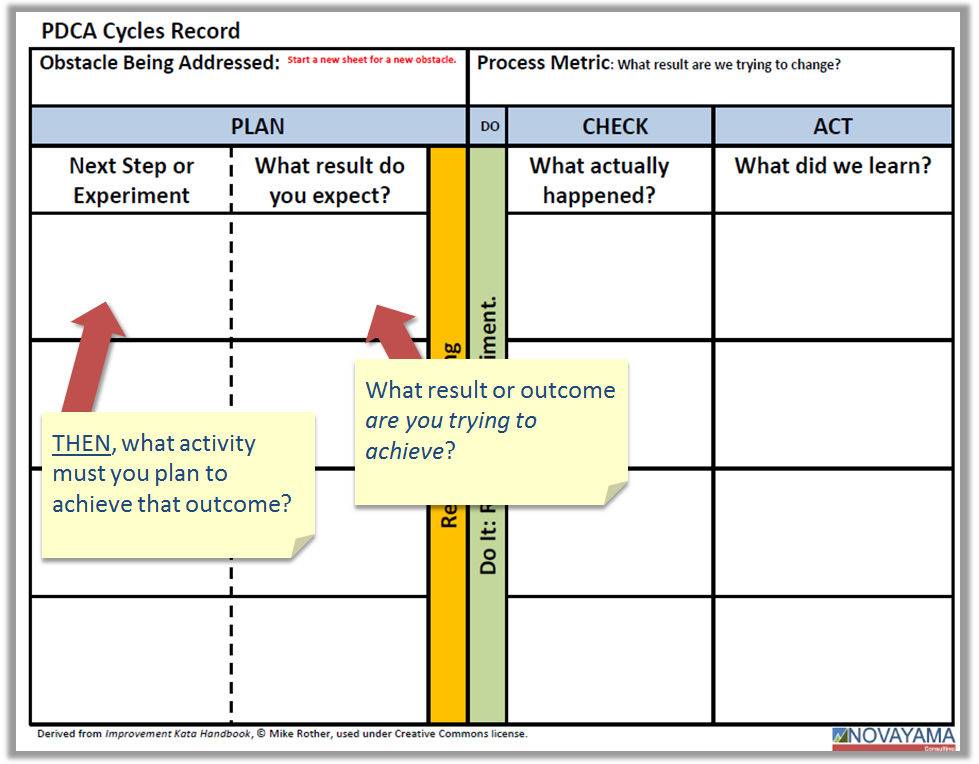In the Improvement Kata sometimes it helps to think about the outcome desired and then the step required to accomplish it.
A couple of months ago, I gave a tip I’ve learned for helping a coach vet an obstacle.
Another issue I come across frequently is a weak link between the “Next Step” and the “Expected Outcome.”
In the “Five Questions” of the Coaching Kata we have:
“What is your next step or experiment?” Here we expect the learner / improver to describe something he is going to do. I’m looking for a coherent statement that includes a subject, verb, object here.
Then we ask “What do you expect?” meaning “What do you expect to happen?” or “What do you expect to learn?” from taking that step?
I want to see that the “Expected Result” is a clear and direct consequence of taking the “Next Step.”
Often, though, the learner struggles a bit with being clear about the expected outcome, or just re-states the next step in the past tense.
While this is the order we ask the questions, sometimes it helps to think about them in reverse.
Reverse the Order
Have the learner first, think about (and then describe) what she is trying to accomplish with this step. Look at the obstacle being addressed, and what was learned from the last step.
Based on those things, ask “what do you want to accomplish with your next step?”
The goal here is to get the learner to think about the desired result. Don’t be surprised if that is still stated as something to do, because we are all conditioned to think in terms of action items, not outcomes.
“What do you need to learn?” sometimes helps.
“I need to learn if ______ will eliminate the problem.” might be a reply.
Even a proposed change to the process usually has “to learn if” as an expected outcome, because we generally don’t know for certain what the outcome will be until we try it.
Have the learner fill in the “Expected Outcome” block.
NOW ask “OK, what do you have to do to ______ (read what is in the expected outcome)?”

That should get your learner thinking about the actions that will lead to that outcome.
A Verbal Test
A verbal test can be to say “In order to ______ (read the expected outcome), I intend to _____ (read the next step.”
If that makes sense grammatically and logically, it is probably well thought out.
This is brilliant Mark. Chapeau!